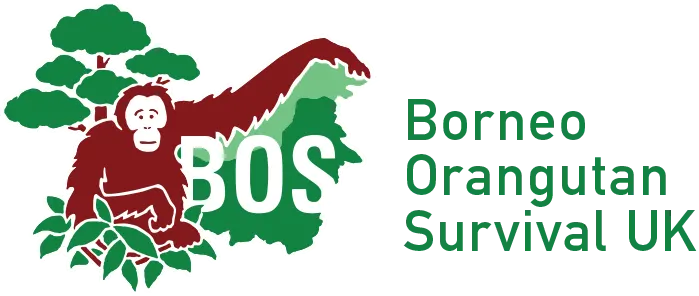Britney
Britney was seven years old when she was rescued from captivity in Bali in June 2000. Upon arrival at Samboja Lestari, Britney was housed inside a socialisation complex because she was physically large for her age and extremely aggressive towards the staff.
To this day, Britney is a stocky orangutan with an indifferent nature, and is extremely difficult to handle. She will completely ignore technicians when they try to get her attention, unless there is a reward involved.
In 2019, Britney was moved to Island #7 to experience the pre-release stage of rehabilitation. During her time on the island, Britney further developed her foraging and nest-building skills and proved she had what it takes to survive independent of humans.
Freet
Freet was rescued in August 1998, from a local villager in Muara Wahau who had been keeping him captive. He was four years old at the time and still displaying wild behaviours. Upon his arrival at Samboja Lestari, Freet was diagnosed with Hepatitis B, and had to be placed in a quarantine complex specially designed for orangutans with this health condition. Even within the confines of the complex, Freet came to be known as a responsive individual, especially with the technicians with whom he was familiar.
Once we learned that Freet had a non-virulent strain of orangutan Hepatitis B, he was finally able to enter the pre-release stage of rehabilitation on Island #7. On the island, he managed to further develop his foraging and nest-building skills.
Freet is now 27 years old and weighs 73 kg. He has been assessed as ready to live in the wild and will soon get the chance to prove his abilities in the Kehje Sewen Forest.
Juve
Juve was confiscated in Jakarta and arrived at Samboja Lestari in March 2001, aged five years. Juve is an independent and aloof individual but will become aggressive if technicians get too close to him, and he shows signs of irritation when he is called by name.
In 2018, Juve got the opportunity to join the pre-release stage of rehabilitation on Island #7, where he managed to develop sound foraging and nest-building skills.
Now 25 years old and weighing 76 kg, Juve is ready to live free and independently in the wilderness of the Kehje Sewen Forest.
19th February 2021
THREE WELL DESERVING ORANGUTANS RELEASED DEEP IN THE RAINFOREST
![]()
![]()
![]()
![]()
Number of Orangutans
Release type
Wild Release
Release site
Kehje Sewen
East Kalimantan
Release Candidates
Select image to expand their bio
Britney
Freet
Juve
Release video coming soon

After our first release of seven orangutans into the Bukit Batikap Protection Forest was completed, on the following day, 18th of February, the same hevilift helicopter flew to our Juq Kehje Swen site, a pre-release island located in Muara Wahau District, East Kalimantan. There, the helicopter provided airlift for our second group of releasable orangutans, involving three adults: two males and one female, brought from our Samboja Lestari Orangutan Rehabilitation Centre by truck the day prior.

Now, the journey for these three orangutans entered its final stage. Following the early morning arrival of the group at Juq Kehje Swen the final leg of travel to the forest was ready to commence, but had to be delayed due to thick cloud cover in the area. Finally, at around 2 p.m. local time the weather finally improved and the release could commence. The team immediately flew Juve, Freet, and Britney to the drop point on the northern side of the Kehje Sewen Forest, where the three transport cages would be opened simultaneously at their respective release points. The journey, which usually takes more than 24 hours by truck, took only 30 minutes by air!


The orangutans, most of whom had undergone a lengthy rehabilitation, were successfully released in to the protected and remote forest to enjoy true freedom. With their forest school skills and foraging abilities at the ready, we are certain they will enjoy living and exploring their new homes in the wild. Our Post-Release monitoring team will be right there to make sure this is the case.

As the helicopter flew away with a dissipating roar and empty transport cages swinging on the sling underneath, the team was filled with emotion. The struggle to rehabilitate these orangutans and finally return them to the forest was over. It would now be up to the post-release monitoring teams to collect observation data on these released orangutans and conduct regular patrols to ensure their safety and well-being in the forest.

With the ten orangutans successfully released, members of the release team can now turn their focus to the next group of release candidates at the BOS Foundation’s rehabilitation centres.
We can’t wait to release more orangutans in the forest this year!







